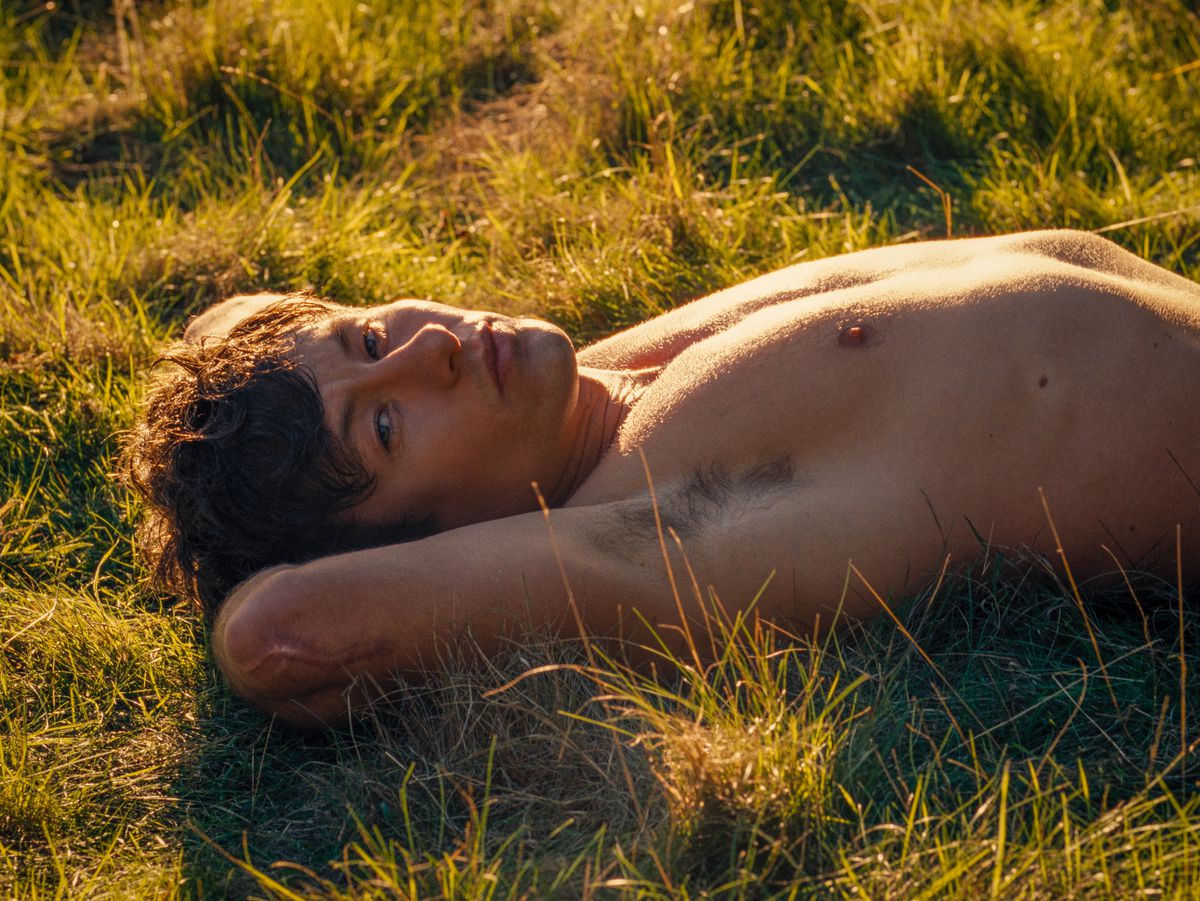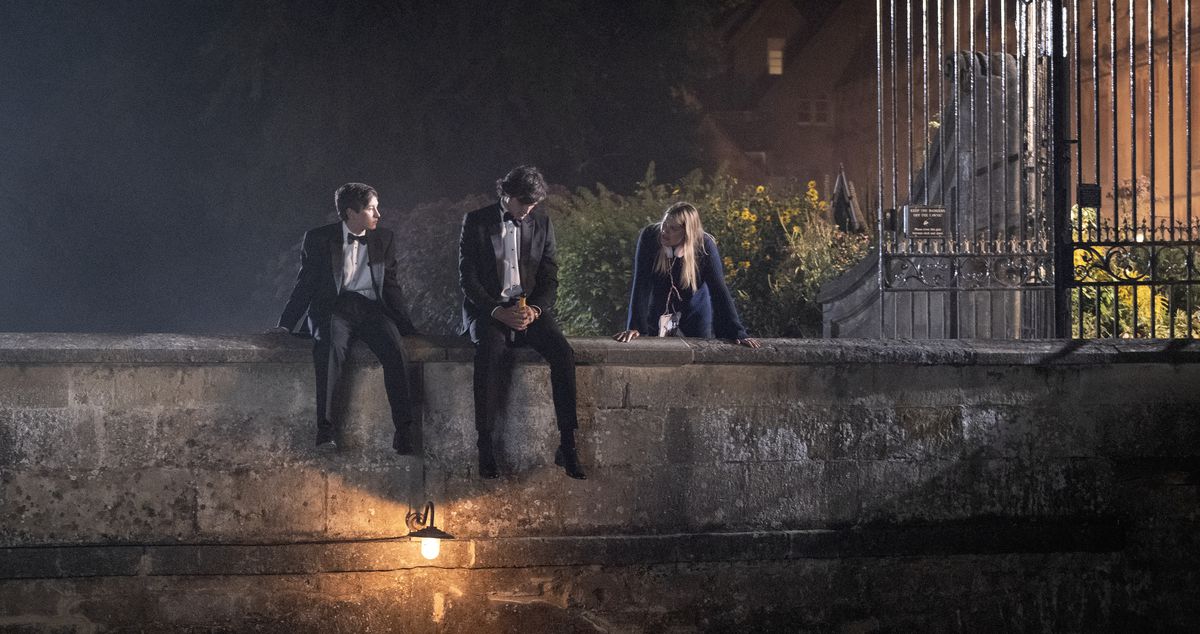Saltburn has shaped up as one of 2023’s most divisive love-it-or-hate-it movies. Emerald Fennell’s follow-up to her 2020 writer-director debut, Promising Young Woman, is radically different from that movie in look and tone, but her talent for pushing boundaries and demanding a response is still front and center, and Saltburn is the kind of button-pusher that generally either thrills people or makes them angry. Critics have responded both ways: “Superficially smart and deeply stupid,” Mick LaSalle grumps in the San Francisco Chronicle, while Entertainment Weekly’s Maureen Lee Lenker calls it “a triumph of the cinema of excess, in all its orgiastic, unapologetic glory.”
And one of the most divisive elements is the ending, which can be read equally as sly art or rank titillation, depending on how you feel about full-frontal male nudity. Polygon dug into it in an interview with Fennell shortly before the movie’s release.
[Ed. note: End spoilers for Saltburn follow.]

Image: Prime
In the movie, hungry social climber Oliver (Barry Keoghan) gradually becomes close to his rich, popular Oxford classmate Felix Catton (Priscilla co-star Jacob Elordi), who brings Oliver to his immense family estate, Saltburn, and introduces him to his family. Felix’s elitist, removed parents, Sir James Catton (Richard E. Grant) and Elspeth Catton (Rosamund Pike), make a hollow show of welcoming Oliver. But Felix’s jaded sister, Venetia (Alison Oliver), clearly sees him as a new toy, and Felix’s vicious, jealous cousin Farleigh (Archie Madekwe) sees him as a rival and an unwelcome upstart.
As it happens, Farleigh is right — Oliver is lying about virtually everything that brought him together with Felix. He invented a family tragedy to make himself a tragic and dramatic figure. A series of flashbacks shows how Oliver engineered their early relationship by pretending to be penniless when he had plenty of money, and by sabotaging Felix’s bike in order to “help” when it broke down.
The later parts of their relationship are even darker: Felix appears to die in an unclear accident, and Venetia appears to kill herself out of grief. But further flashbacks show that Oliver murdered both of them, out of fear of being ejected from Saltburn, and resentment for the way they’ve both rejected him. It’s also clear that he sets Farleigh up to be disinherited, then poisons Elspeth after James dies, all in order to inherit Saltburn himself.
And in the final scene, Keoghan dances through the estate, stark naked and triumphant, waggling his ass to Sophie Ellis-Bextor’s “Murder on the Dancefloor,” and presiding over a sad little row of memorial stones with the family members’ names on them, dredged up from the estate’s waterways to form a kind of ritual audience for his dance.
“The movie always ended with Oliver walking naked through the house,” Fennell tells Polygon. “It’s an act of desecration. It’s also an act of territory, taking on ownership, but it’s solitary.”

Photo: Chiabella James/Prime Video
As viewers watch the scene, Fennell wants them to notice Oliver’s path through the house, which is a reversal of his entry to the house earlier in the film. When Felix introduces Oliver to Saltburn with a small tour, it’s an invitation to a place that doesn’t belong to him. And when he does his dance, he’s following that same path in reverse, this time boldly claiming the space instead of shyly tiptoeing into it.
“The nudity is an act of ownership,” she says. “It wouldn’t be the same if he’s just walking through the house in his pajamas. It’s that he’s walking through his house. It’s his fucking house, and he can do whatever he wants to with it. And that’s what makes it thrilling and beautiful.”
The original script had Oliver symbolically claiming the house by walking through it, but Fennell says something about the scene as she’d planned it didn’t sit well with her. “It just became apparent as we were filming it that the naked walk was not really going to have the feeling of triumph and joy, elation and post-coital success [I wanted]. It felt lonely and sort of empty. It speaks to Barry that when I said to him, ‘I don’t think it can be a walk, I think it needs to be a dance,’ — that’s the thing about Barry as a performer. He profoundly understood and completely agreed, and knew it had to be that way. There really wasn’t another way we could do it, given the film we’d just seen. To me, it feels like the ultimate sympathy for the devil.”
Fennell has already talked about how Saltburn simultaneously has sympathy for everyone in the film, and for no one — there are no outright villains in the story, in her opinion, just people with understandably flawed ways of looking at the world. That perspective helped her sympathize with Oliver at the end, which she hopes the audience will do as well, even though he’s an unrepentant murderer.
“We have to be on his side at the end,” she says. “It’s crucial that the more violent he is, the more cruel, the more he plays them at their own game, the more we love him, even though we loved them, too. We have to feel at the end, like, ‘Yeah, yeah, get it.’ The way Oliver gets it is the way the Cattons would have got it in the first place. How do people build these houses? How do they make these houses? They’re built by violent means and got by violent means. So that’s where it ends as well.”
Saltburn is in theaters now.
- SEO Powered Content & PR Distribution. Get Amplified Today.
- PlatoData.Network Vertical Generative Ai. Empower Yourself. Access Here.
- PlatoAiStream. Web3 Intelligence. Knowledge Amplified. Access Here.
- PlatoESG. Carbon, CleanTech, Energy, Environment, Solar, Waste Management. Access Here.
- PlatoHealth. Biotech and Clinical Trials Intelligence. Access Here.
- Source: https://www.polygon.com/23984716/saltburn-ending-explained-barry-keoghan-full-frontal-nudity



